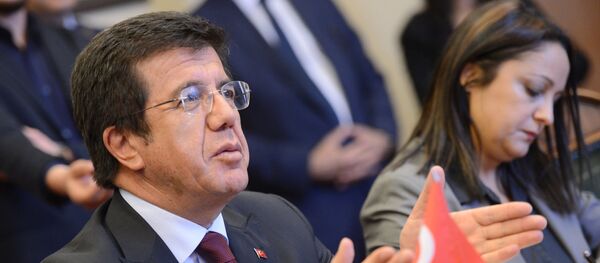"If this coup attempt had occurred in other countries with high GDP…the economy of these countries would not have been able to recover… As for us, the following morning after the attempted coup, already at 8:30 a.m., the stock exchange was functioning and was in full working condition. Turkey, in this respect, in all areas, by all criteria, including economic ones, is in a very good position," Zeybekci said.
Standard & Poor's downgraded Turkey’s sovereign credit rating on July 20, citing the failed coup and fallout it would have on the nation’s externally-leveraged economy.
Moreover, Turkey has no plans to govern the country's economy using decree-laws under the declared state of emergency, Nihat Zeybekci added.
"No. There are no plans to use this right in economics," Zeybekci said.
A three-month state of emergency declared by Turkish President Recep Tayyip Erdogan following the failed July 15 coup has seen the arrests of more than 10,000 people and a sweeping purge of more than 50,000 judges, civil servants, military officers and educators, according to published reports.
Under the state of emergency, Erdogan can enact new laws bypassing the nation’s legislature and it also imposes restrictions on public gatherings.




